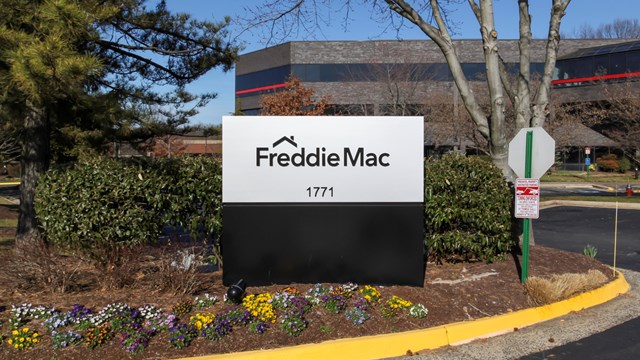One of the most important pieces of insurance coverage a co-op or condo building carries is its
directors and officers (D & O) policy. This coverage protects the personal assets of board members from exposure in the event a lawsuit is filed against the board. In many such suits, the building's management firm, its principals and the individual agent responsible for the building are also named.
Until now, in such a situation, the board would activate its D & O coverage and its insurance carrier would provide legal defense for the board members. But the management company would have to engage its own separate defense. Few boards realize, however, that they usually wind up paying for the management company's legal fees because of a boilerplate hold harmless clause in most management contracts.
A Recent Change
Things changed late last year, however, when Chubb Group Insurance introduced a rider now available that will enable a board to add its management company and agent as additional insured on its D & O liability policy. The announcement, made by Kevin Davis, vice president of Ian H. Graham, a California-based broker for Chubb, at a December 1995 seminar sponsored by the recently-established Association of Cooperative and Condominium Managers (ACCM), set a new standard for residential property insurance coverage.
Until now, directors and officers policies covered a property's directors and officers, the property itself, all volunteers and committee members, and any employees of the property, explains Michael Johnson, vice president and managing general agent for Ian H. Graham. Now we're offering an endorsement (or rider) to the property's D & 0 policy that provides coverage to the management company that is under contract to the property, covering the company and agent for claims directed against the board when those claims also name the management company, its principals, and/or the managing agent.
A Rise in D & O Claims
For many years, this really wasn't a big issue, says Neil Davidowitz, president of Orsid Management, which manages 55 co-op and condo buildings. There were very few D & 0 claims. But they've become popular in the last few years. They manifest in two areas: when there's a rejected sale or sublet application, and when fired employees take action against the building. While the action is pending with the union, employees now file discrimination claims with either the New York City or State Human Rights Commission. This is a D & 0 claim, but many D & 0 policies don't cover discrimination. Chubb does accept cases of alleged discrimination.
To the extent that all agents are fiduciaries and agents of the property, we are effectively carrying out what's being asked of us, says Leslie Winkler, president of the ACCM and director of management for Penmark Realty. It's not that management companies won't have their own insurance for their own purposes. But now the D & 0 policy can be broadened to cover the property's responsibility to its management entity specifically, she says.
Management companies carry their own errors and omissions insurance, a policy that protects them from suits filed by boards. Depending on the specific terms of the management company's errors and omissions policy, Chubb's new endorsement could fill in the gaps (for example, the errors and om ffb issions policy may exclude employment discrimination and/or wrongful discrimination suits) and could have a lower deductible, explains Andrew S. Halpern, senior trial attorney with the law firm of Jay G. Seiden & Associates, P.C., which represents more than 100 real estate developers and co-op and condo boards.
An Expensive Mistake
In the event of a D & O claim, The claims must be defended, and the cost to defend them can add up quickly, says Robert E. Mackoul, president of Mackoul & Associates, a Lynbrook, Long Island-based insurance and financial services company serving about 200 co-ops and condos. But the standard D & 0 policy to date doesn't cover managing agents whatsoever. Now Chubb will cover managing agents. So all people who sit on a board, even managing agents, must know what coverages are available and take advantage of them, because ignorance in this case could be a very expensive thing.
In terms of the cost of the new endorsement, The rule of thumb is that this new endorsement from Chubb adds approximately 20 percent to the annualized premium that the property is now paying for D & 0 coverage, says Nancy Gelardi, vice president of Gallagher-Newman, a division of Arthur G. Gallagher, a national brokerage firm serving hundreds of multi-unit residential properties nationwide. And, she adds, Since the average premium for $1 million of coverage runs between $1,250 and $1,500, the property is looking at an additional $250 to $300 a year to include their management company as additional insured, an amount she considers to be negligible compared to a property's exposure when they have to assume the cost of defending their management company separately.
Benefits to All Parties
Both managers and boards benefit by this expanded form of D & O coverage. Management companies benefit because now they can be explicitly covered, avoiding the expense and hassle of obtaining their own legal defense. And properties benefit because the overwhelming number of management contracts call for properties to indemnify and defend the management company in lawsuits relating to the management of the property that do not arise from negligence or breach of contract.
Board members uncertain of the extent of their own directors and officers coverage are well-advised to review their policies, and to consult with their carriers about whether or not they are willing to include the management company and managing agent as additional insured.
Ms. Dershowitz is a Contributing Editor of The New York Cooperator.







Comments
Leave a Comment